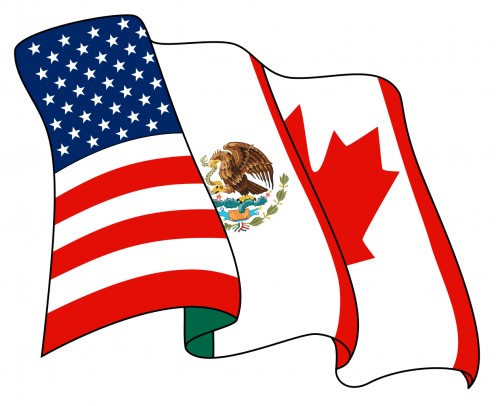Another Look Into the Problems of NAFTA

Another look into the Problems of NAFTA
There appears to be no absence of conversation related to the North American Free Trade Agreement (NAFTA). Not all things that enter humanity’s collective consciousness are worthy of continued propulsion. However, the topic of NAFTA is one that deserves further discussion. NAFTA has been an item of some great concerns for many people, especially the denizens of Mexico. Since the launch of NAFTA the wages in Mexico have significantly decreased (Macdonald 173), the increased monopolization of a single industry has been made possible (Macdonald 173), and, perhaps most noteworthy to the empathetic mind, is the increased human rights issues that have arisen with the growth of the maquiladora (Macdonald 173).
The initiation of NAFTA has not been very good for Mexican labourers (Macdonald 173). “Since the signing of NAFTA, Mexican minimum real wages have fallen by 24.8 percent” (Macdonald 173). Moreover, the “Authentic Workers’ Front… has” claimed NAFTA as the root cause for “the loss of 1,000,000 jobs” (Macdonald 173).
Additionally, the aftermath of the signing into action of NAFTA has aided in the potential for the monopolization of the maquiladora sector. “[T]his sector absorbed fully 98 percent of new jobs created in Mexico” (Macdonald 173). Job markets need to possess healthy levels of competition in order that workers may more likely be protected, wages may be increased, and that workers may be provided with alternative options within said market.
Ian Thomas Macdonald calls those occurrences established with the aid of NAFTA as “destructive” to the Mexican working classes”. Macdonald goes on to state that, due to NAFTA’s “increase in capital mobility” more work has been moved to “the maquiladora (assembly plant) sector” in Mexico. Although the “maquiladora sector” began in the 1960s (Domínguez 187), its surge is still problematic as “the maquiladora sector” is “controlled by… corrupt, corporatist unions” (Macdonald 173). The situation is still worse; “98 percent of new jobs created in Mexico” have gone into the maquiladora sector (Macdonald 173).
NAFTA has been a problem for the Mexican people. NAFTA has aided lower wages, increased power in a single sector, and it has helped with the increasing power of the maquiladora. Upcoming generations should not disregard such findings, but instead use and apply this knowledge in the hopes of a better future for all.
Works Cited
Domínguez, Edmé, et al. “Women Workers in the Maquiladoras and the Debate on Global Labor Standards.” Feminist Economics, vol. 16, no. 4, Oct. 2010, pp. 185-209. EBSCOhost. Web. 10 Mar. 2017.
Macdonald, Ian Thomas. “NAFTA and the Emergence of Continental Labor Cooperation.” American Review of Canadian Studies, vol. 33, no. 2, June 2003, p. 173. EBSCOhost. Web. 10 Mar. 2017.
© 2019 Alexander James Guckenberger





